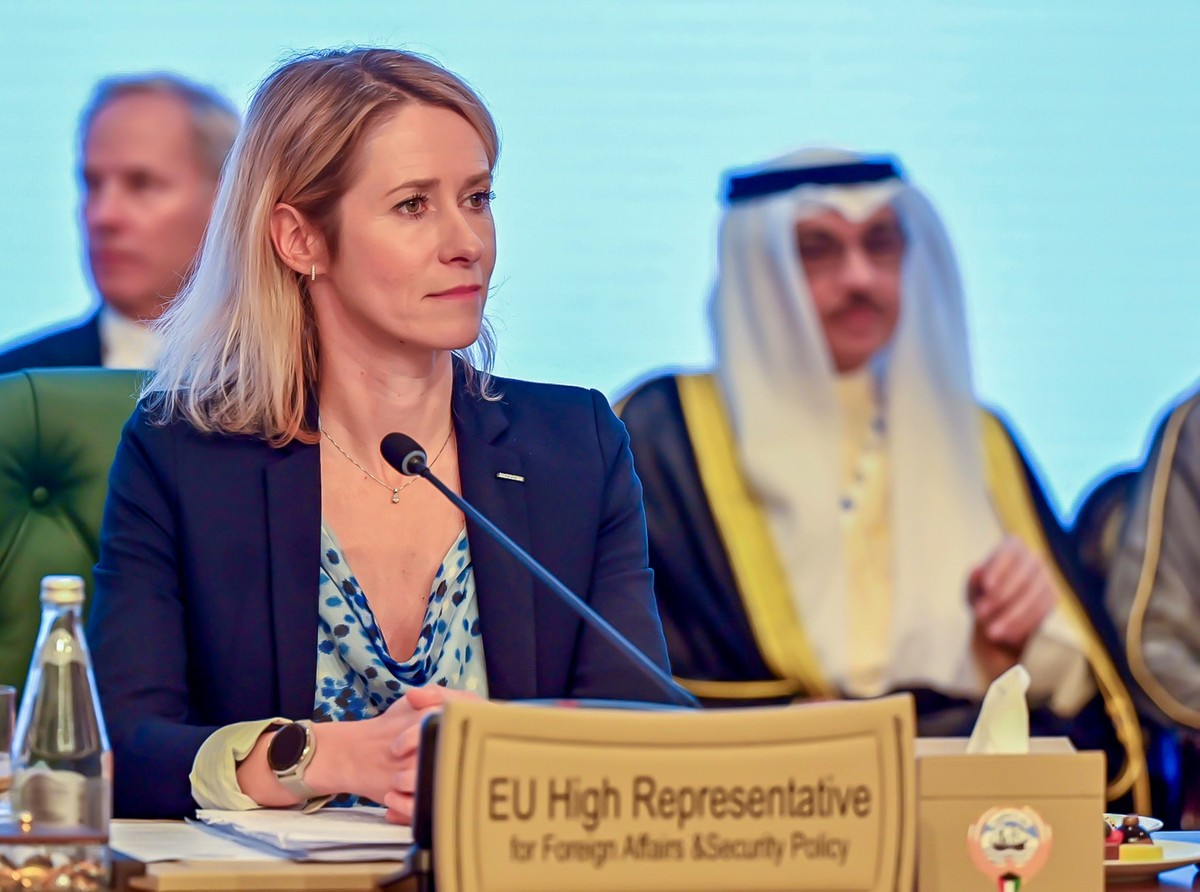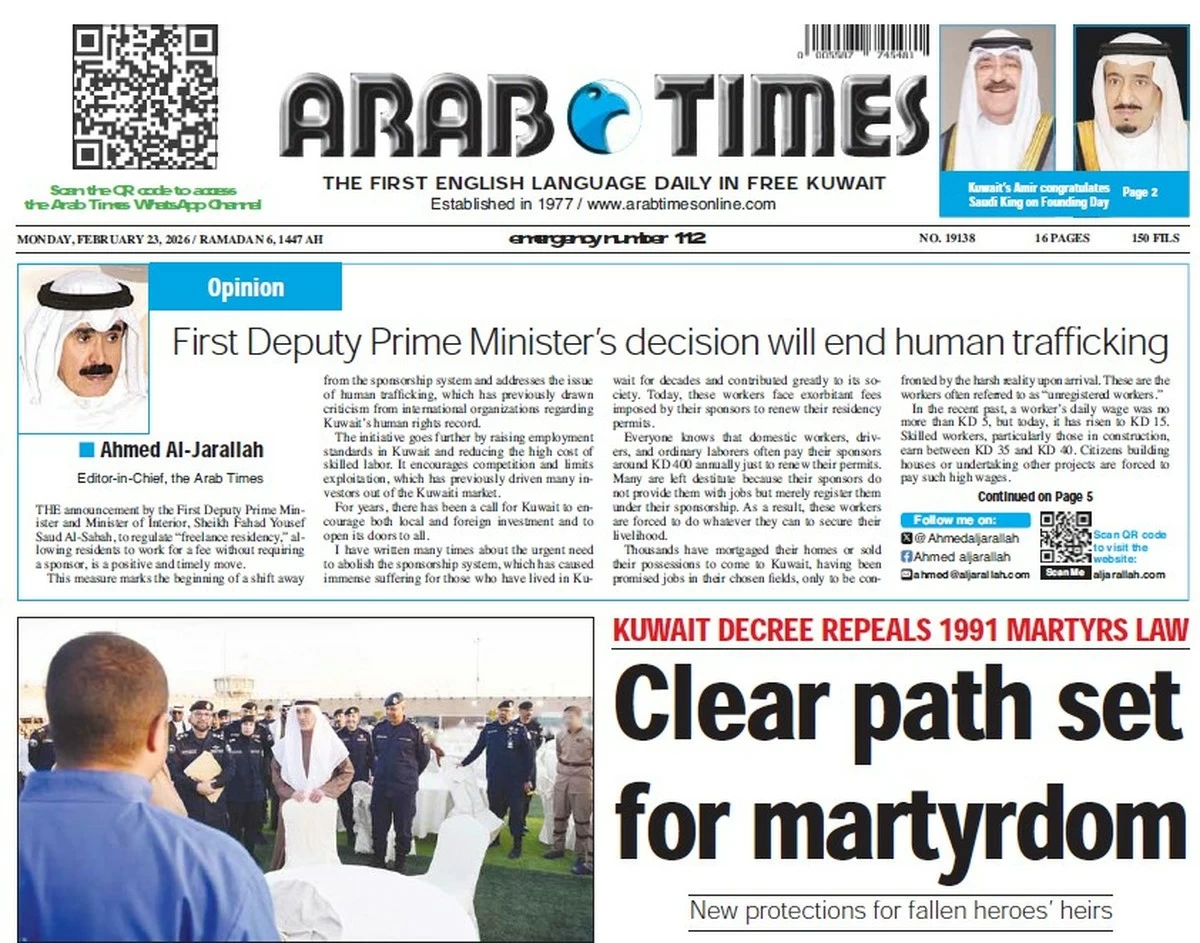06/10/2025
06/10/2025

KUWAIT CITY, Oct 6: Kaja Kallas, High Representative of the European Union for Foreign Affairs and Security Policy and Vice-President of the European Commission, underscored the urgent need to strengthen cooperation between Europe and the Gulf in tackling regional and international challenges. Speaking at the launch of the second high-level forum on regional security and cooperation between the Gulf Cooperation Council (GCC) and the European Union, hosted in Kuwait on Sunday, Kallas emphasized adopting diplomatic solutions to secure lasting stability in the Middle East.
The forum, attended by foreign ministers and senior officials from both sides, serves as a precursor to the 29th joint ministerial meeting scheduled for Monday. Kallas, co-chairing the forum for the EU, was joined by Kuwaiti Foreign Minister Abdullah Al-Yahya, who chairs the current GCC Ministerial Council session, alongside GCC Secretary-General Jassim Al-Budaiwi.
Highlighting shared interests, Kallas said, “The world needs more diplomacy and cooperation instead of confrontation to enhance dialogue and understanding, ultimately achieving regional and international stability.” The forum’s discussions centered on three critical issues: Iran, maritime security in the Red Sea, and the situation in Gaza.
On Iran, Kallas welcomed the UN Security Council’s re-imposition of sanctions as a significant milestone and confirmed the EU’s plan to reimpose previously lifted nuclear sanctions. However, she reaffirmed the EU’s commitment to diplomacy, noting, “A sustainable solution can only be achieved through negotiations, with the shared goal of enabling Iran to become a responsible partner in international affairs.”
Addressing maritime security, Kallas pointed to the growing threat posed by attacks on commercial vessels in the Red Sea and Gulf of Aden, linked to the Yemen conflict, which endangers international navigation freedom. She highlighted the EU’s Operation Aspides, which has protected over 560 ships and supported 600 others, and announced the extension of the operation until February, with further extensions under consideration. She stressed the importance of regional agreements to bolster maritime security and strengthen the Yemeni Coast Guard.
Regarding Gaza, Kallas described the situation as a “major challenge to the international system.” She acknowledged the significance of the peace plan for Gaza put forth by US President Donald Trump and emphasized that “achieving lasting peace in the Middle East is based on the two-state solution and enjoys international consensus.”
The high-level forum in Kuwait marks a critical step in deepening EU-GCC ties, aiming to foster collaborative approaches to security and stability in a region fraught with complex geopolitical challenges.


